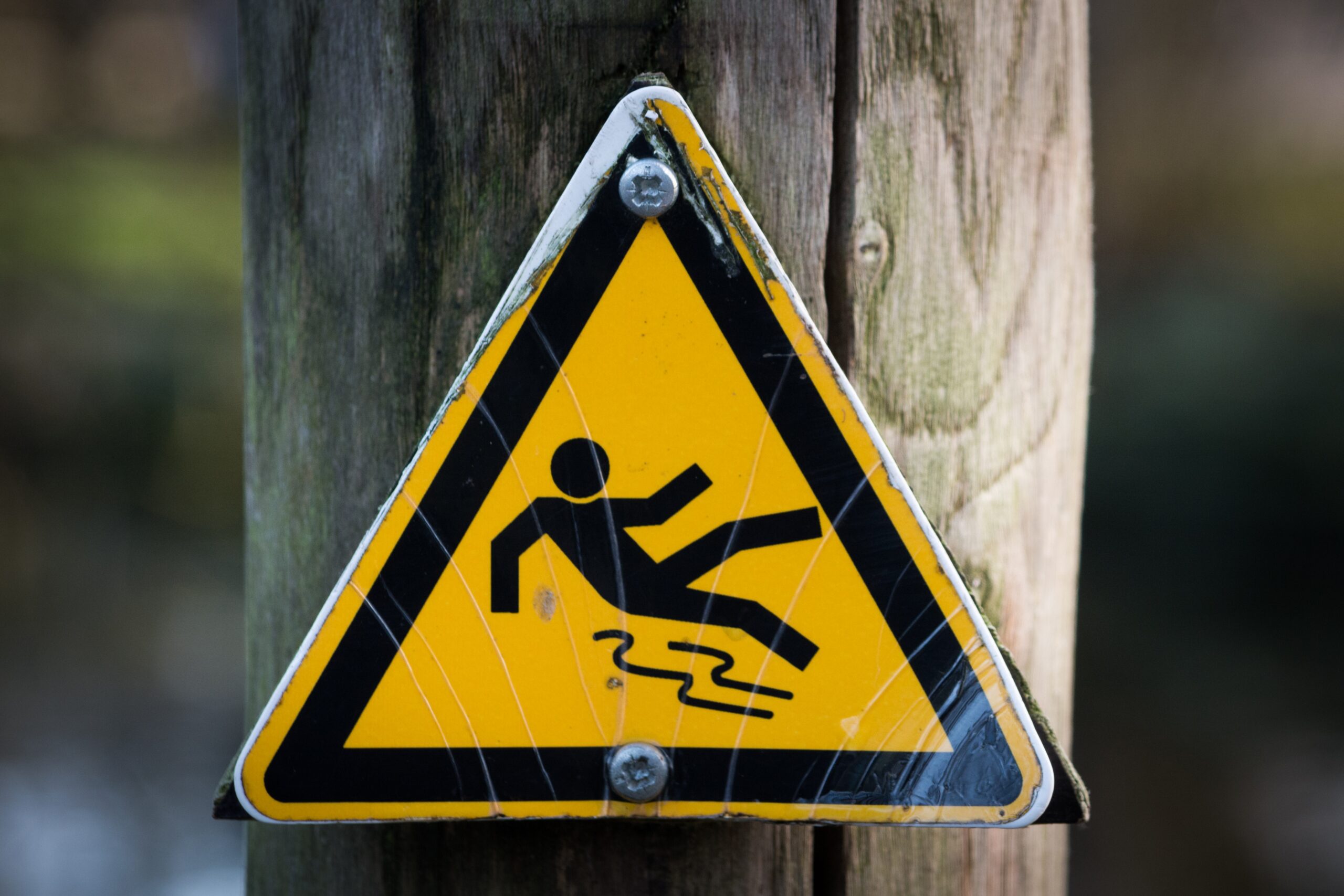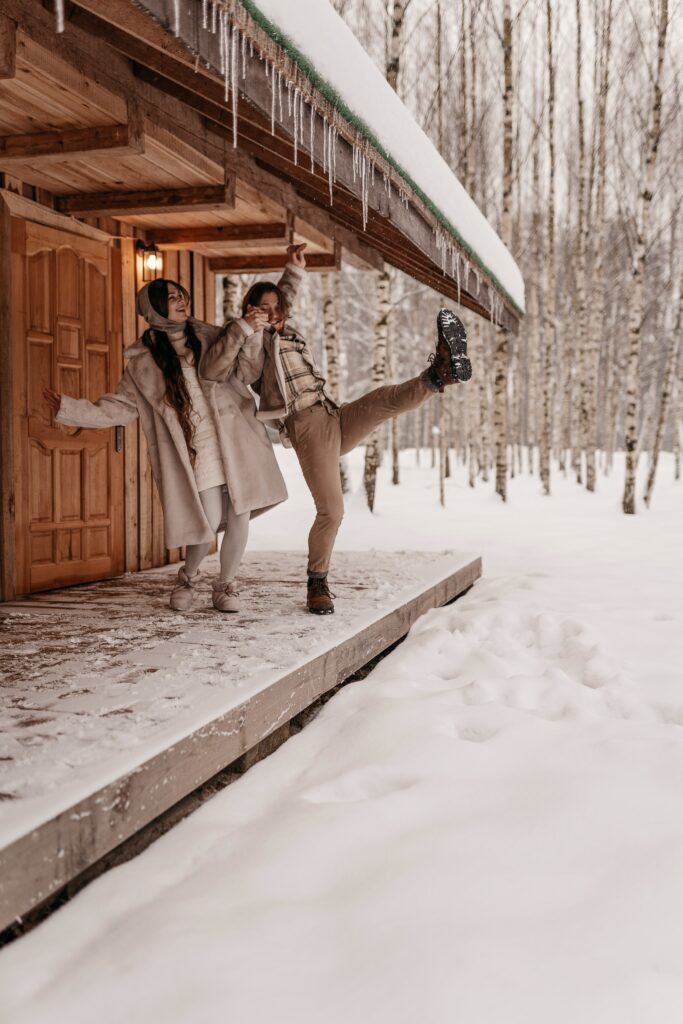In a slip and fall case, you should contact an attorney immediately. This blog post will go over the steps that you need to take when handling a slip and fall case so that you can have a better chance of recovering damages from your injury.
What is a Slip and Fall Case?
A personal injury case known as “slip and fall” occurs when someone trips or slides on someone else’s property and sustains an injury. Premises liability claims are a broad category of a lawsuit that typically includes these situations wherein the property owner is possibly liable.
Several hazardous circumstances, such as ripped carpeting, changes in flooring, dim illumination, narrow stairs, or a wet floor, might result in a slip-and-fall injury. Also, if someone trips and falls on a set of steps or a public walkway that is damaged or cracked. A slip and fall lawsuit may also develop if a person trips or falls outside due to rain, ice, snow, or a hidden hazard like a pothole in the ground. In any case, to be entitled to compensation, the petitioner must have suffered some sort of injury, no matter how minor.
Seek Medical Attention
Accidents like these happen often all over The Sunshine State and they’re not pleasant to experience. However, the first thing you need to do is visit a doctor or have an ambulance come out to determine your injuries and diagnose you. Almost all slip and fall attorneys in Florida will explain to you how having confirmation by doctors is the best way to go when you want to get compensated for these things. Visit your physician as soon as you can so they can document your injury.
Also, make sure to keep all the medical bills because they can come in handy later on. You need to know that you’re not the one that needs to pay for these bills. If you have a Personal Injury Protection plan, then your medical bills will be covered by the insurance company providing them for you.
Call The Police
The police should be called out to the scene of any slip and fall accident as soon as possible. This is to ensure that a proper investigation can be conducted and to gather evidence for the case. With the police on the scene, you will also have the opportunity to speak with an officer about your case. This could prove to be valuable information down the road.
Tell the officers the truth and never exaggerate your injuries. This could lead to criminal charges if it is found that you are lying about the accident. Remember, honesty is always the best policy.
Once they’re done with the report, ask for a copy and make sure to read it over carefully. This will be the document that shows all of your injuries and damages as a result of the accident, which you can use in court if legal action is taken.
Document The Scene Yourself
While you’re there, you should make sure to document the scene yourself. You can use a camera to take photos or video of the location and your surroundings, with a particular focus on documenting how things were when you fell in order to compare them with their condition after any cleanup has been done by an authority figure.
If there’s nothing else around for documentation purposes, then at least try taking some measurements using a tape measure so that it’ll be easier to show what happened as accurately as possible later on during litigation proceedings. Don’t forget about collecting evidence either. If you notice anything out of place before somebody cleans up, then grab those items too because they could have important information that might prove useful down the road!
Find Out Who Is Liable
You need to learn who can be found liable for your slip and fall case. If you can’t find anyone who is, then the state doesn’t have a finding that would be useful to you as it pertains to finding out what happened.
Here’s who can be held liable in the state of Florida:
- property or business owner
- tenant of the property
- an employee of the property or business owner
- a contractor who performed work on the property
- a construction company
- the city if it happened on public property
- the landowner
The state will likely investigate all potentially liable parties and determine which one, if any, is at fault.
How Does Negligence Impact a Property Owner’s Liability?
The word reasonable is frequently used during settlement discussions and other crucial phases of slip-and-fall lawsuits. That’s because a property owner must have disregarded what a reasonably sensible person would have done to avoid the accident to be considered “negligent” and be responsible for damages in a slip-and-fall case. Here are some aspects that plaintiffs should consider while attempting to determine whether the defendant acted reasonably:
1. Did the dangerous circumstance or obstruction last long enough for a responsible property owner or worker to act to remove it?
2. Is there a log or other record showing whether the process was followed just before the accident? Or whether the property owner or employee has a policy of routinely inspecting for potential dangers on the property.
3. Was the development of the possible risk justified in a reasonable sense? And if so, was this defense still valid when the slip or fall occurred?
4. Could the risky situation have been lessened in severity by taking preventive steps like moving the hazard, adding enough warning signs nearby, or restricting access to the area?
5. Were the slip and falls caused by poor illumination or poor visibility?
Get Witnesses To Testify
Witnesses are a vital asset for you to have in a slip and fall case. They can help back up your story about what happened, but they also need to be able to provide you with the correct information on whether or not there was negligence involved.
Write down their contact information so you can call them in to testify at a later date. This will help your case a lot and increase the chances of getting a favorable ruling. Remember, getting witnesses to testify is one of the most important parts of handling any slip and fall case. Make sure you do everything possible to get them on your side!
File A Personal Injury Claim
When you have all the evidence needed, it’s time to file a personal injury claim. Doing so will ensure that you are able to handle the case in a way that is best for you and your loved ones. Remember, filing a personal injury claim is just the beginning of the process. Be sure to have patience and keep track of all developments in order to obtain the best possible outcome.
If you’re not sure where to start, contact an experienced personal injury lawyer who can help guide you through this difficult time. With their assistance, you’ll be well on your way to securing justice and getting back on your feet.
When Can a Property Owner Be Held Responsible for a Slip-and-Fall Accident?
Let’s examine how the most prevalent categories of slip-and-fall accidents often operate in terms of standards of liability.
1. Tripping or falling steps
Staircases can pose risks that people won’t even realize. A foreign substance on the steps, poorly built handrails, or a lack of handrails are just a few of the variables that may contribute to someone slipping and falling down a flight of stairs. Incorrect height steps, risers, or steps of different heights may also be possible causes of falls and slips. Overly shallow steps and rugs or carpets on the stairs that are frayed or dangerous can also cause accidents.
The property owner might be held responsible for any injuries caused by a guest slipping on the stairs if the accidents were caused by those mentioned above, which the owner was aware of but did not do anything to repair the problem. Yet, there are situations when people trip overstep due to their negligence or an unavoidable event for which the property owner is not legally liable. For instance, a partygoer who is walking downstairs while texting and fall since they are not paying attention to where they are going.
2. Slipping or falling on damaged floors, carpets, or rugs
Rugs, carpets, and floors can also result in responsibility for a mishap. Area rugs without an appropriate grip pad are a severe slipping hazard. Guests may also trip on rugs that have holes or ragged edges. Flooring can also cause accidents, especially if wet or newly waxed, as well as cracked, poorly installed, or extremely slippery flooring. Yet, a fall brought on by a rug or a slippery floor isn’t always the property owner’s fault, much like with incidents on stairs. That can be bad luck or the guest’s fault, such as ignoring a sign that is cautioning them about a wet floor.
3. Slipping on snow or ice
People losing their footing on ice or snow on a home property may cause numerous injuries and legal disputes. In most states, homeowners are required by law to take reasonable steps to clear snow and ice off their sidewalks and pathways and keep themselves and passers safe. The case involving this situation may be hard to prevail against a homeowner. Juries in states with harsh winters are frequently unwilling to hold homeowners accountable because they believe ice and snow are known hazards and that people should exercise caution.
4. Slipping on a sidewalk or broken path
If homeowners do not maintain the sidewalks and walkways on their land in an acceptable repair condition, they may be held liable. Local laws frequently compel them to keep the walkway before their property free of snow, ice, and other hazards. Public sidewalk repairs, however, are often the responsibility of the municipality. Suppose you trip over cracked or uneven pavement and get hurt. You can have a negligence claim against the local government in that case. However, the legislation makes bringing a lawsuit against a municipal government challenging. It frequently caps how much you can receive even if you succeed.


